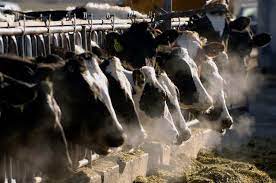Meet the Experts
- Jennifer B. Nuzzo: Professor of Epidemiology and Director of the Pandemic Center at Brown University School of Public Health.
- Lauren Sauer: Associate Professor at the University of Nebraska Medical Center and Director of the Special Pathogen Research Network.
- Nahid Bhadelia: Infectious Diseases Physician, Associate Professor, and Founding Director of the Center on Emerging Infectious Diseases at Boston University.
Addressing the Concerns: Federal Response to H5N1
Federal Action
The discovery of bird flu virus particles in milk has prompted the federal government to take more aggressive measures to prevent the further spread of H5N1 on dairy farms. The Agriculture Department has issued new testing recommendations to curb the virus’s transmission across state lines.
Identifying the Primary Threat: Infection of Farmworkers
Human Threat
While additional testing measures aim to contain the spread of H5N1, the primary concern remains the infection of farmworkers. Failure to protect them not only jeopardizes their health but also provides the virus with opportunities to evolve into a more significant threat to public health.
Evaluating Risks: Viral Material in Pasteurized Milk
Alarming Discoveries?
The presence of viral material in milk sold in American stores may raise concerns, but pasteurization, despite not eliminating pathogens, effectively neutralizes their ability to infect consumers. Follow-up testing has corroborated this, as researchers have been unable to isolate and cultivate the virus from pasteurized milk samples.
Urgent Actions Needed
Call to Action
As concerns regarding the presence of bird flu virus particles persist, it is imperative to prioritize the protection of farmworkers and implement stringent measures to prevent further transmission. Collaboration between government agencies, researchers, and healthcare professionals is crucial in mitigating the risks associated with H5N1.




